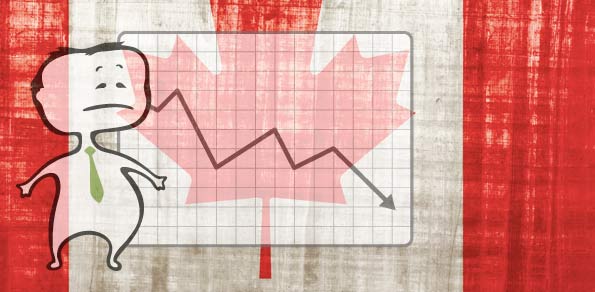Consumer confidence has fallen in Canada, partly on concerns about employment and recession and high prices, according to the latest data from the Conference Board of Canada.
This month, the board’s Index of Consumer Confidence dropped 4.5 points from March, leaving negative attitudes at their highest level in more than two years. The index now stands at 75.0, the board said Tuesday in a statement.
The drop came after three consecutive monthly increases and was driven by 27.8% of respondents who said they expect fewer jobs in their communities in six months’ time.
A drop-off in auto sales in February led to Canada’s first decline in retail sales in seven months, Statistics Canada reported on Tuesday.
Retail transactions in February were down 0.2% to $38.9-billion on a seasonally adjusted basis, the first decline since July of 2011. Economists were expecting a rise of 0.1%.
At the same time, the federal agency revised its figures for January downward to a gain of 0.2%, rather than the 0.5% previously reported.
Sales fell in five of the 11 sub-sectors tracked for the report, representing 57% of total sales, but the biggest decline came in the auto sector, which fell 2.4% overall in February. When that sector is excluded, retail sales rose 0.5%.
Lower receipts at new car dealers (down 2.8%) accounted for most of the decline, Statistics Canada reported. Food and beverage sales dropped 0.2% in the month, while outlets catering to sporting goods, hobbies, music and books saw their sales fall one per cent.
Meanwhile, a 1.7% increase in sales at gasoline stations was the fourth-straight monthly rise, largely from higher fuel prices. Sales were also up at places that sell building and garden supplies, and clothes.
As expected, the considerable boost from auto sales seen in January has faded — and is unlikely to return in the near future given that we expect new vehicle sales to be relatively flat this year. However, with gasoline prices continuing to rise in March, gas station receipts are likely to give retail sales a boost next month as well.
Given the surge in job creation seen in March 9 which could have been a statistical fluke typically has a positive implication for consumer spending — the final month of the quarter will likely record an increase in sales. As such, retail sales will likely add favourably to economic growth in the first quarter, despite February’s decline.





